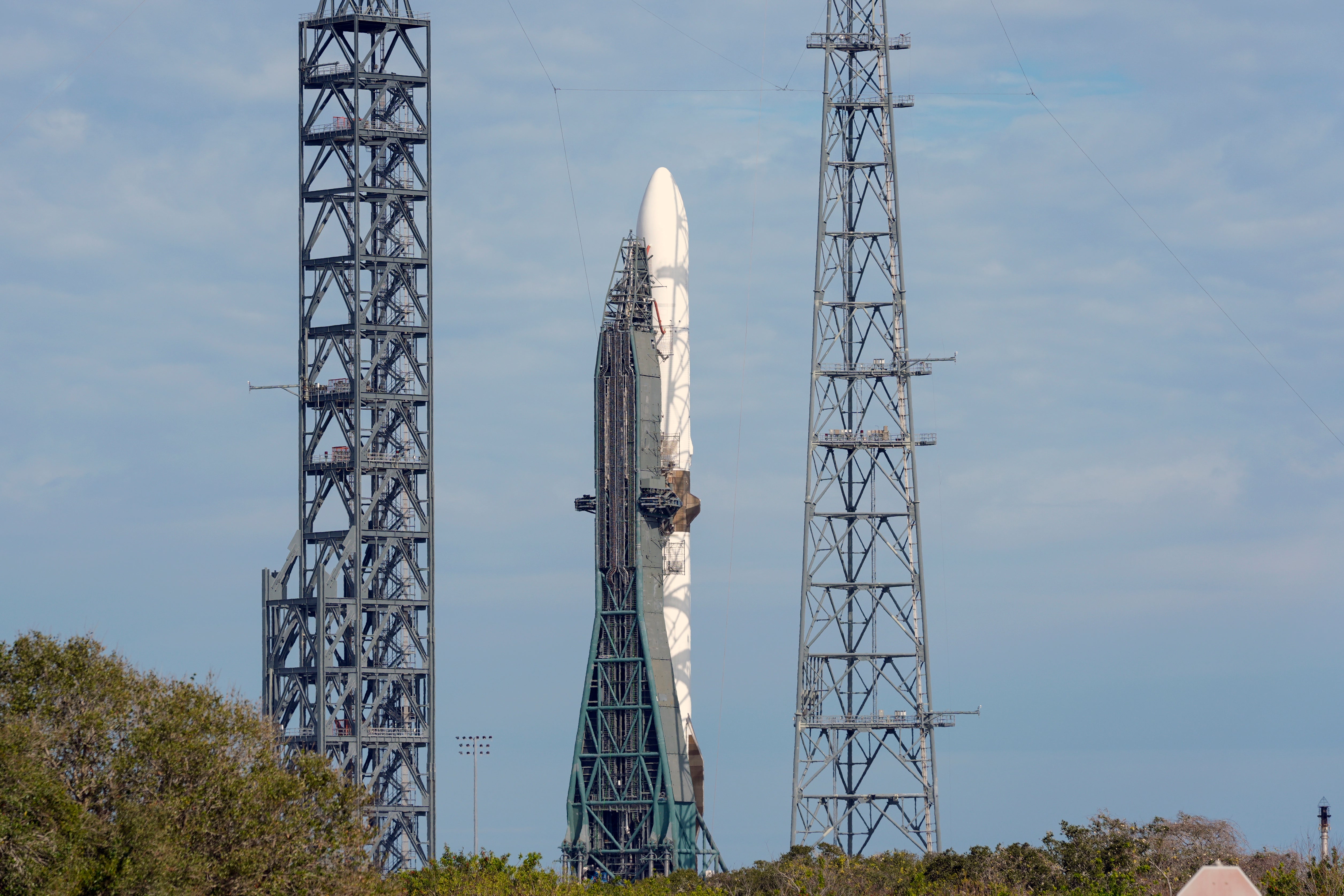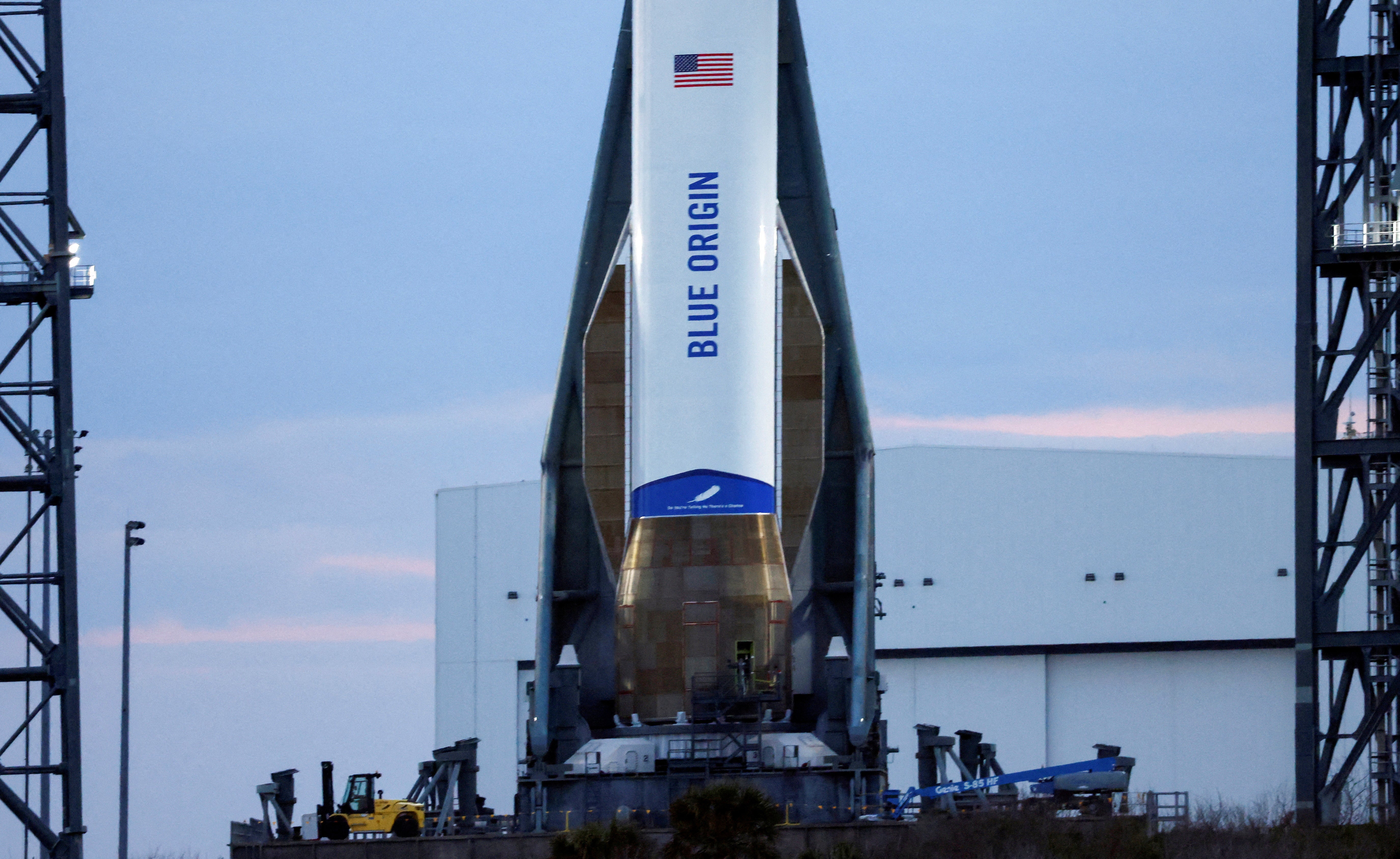Jeff Bezos’s giant New Glenn rocket has blasted off into space just days after the launch was scrapped at the last minute.
The 30-storey tall Blue Origin rocket launched into earth’s orbit at around 7am GMT from the Cape Canaveral Space Force Station in Florida on Thursday.
The private space company hopes to offer launches of the kind provided by competitor Elon Musk’s SpaceX, which has pioneered reusable rocket technology.
Its first attempt to launch on Monday was scrubbed around 3am ET (8am GMT) because ice had accumulated on a propellant line.
The mission will include an attempt to land New Glenn’s first stage booster on a sea-fairing barge in the Atlantic Ocean 10 minutes after liftoff.

Secured inside New Glenn’s payload bay is the first prototype of Blue Origin‘s Blue Ring vehicle, a maneuverable spacecraft the company plans to sell to the Pentagon.
Hundreds of employees gathered for the launch at Blue Origin‘s Kent, Washington headquarters and its Cape Canaveral, Florida rocket factory, a company live stream showed.
Residents of Florida’s east coast also cheered from parks and camp sites several miles from the launchpad upon liftoff.
New Glenn is named after the first American to orbit Earth, John Glenn. It is five times taller than Blue Origin‘s New Shepard rocket that carries paying customers to the edge of space from Texas.

In May last year, Bezos’s company launched six tourists, including the first Black man to train as an astronaut, to the edge of space.
The 11-minute suborbital flight lifted off from Blue Origin’s base in West Texas, launching the passengers into zero gravity so they could experience weightlessness and view the Earth’s horizon.
The rocket took them over Kármán Line — widely considered to be the border between the Earth’s atmosphere and outer space — before the six new astronauts landed safely back in a western Texas desert.
The journey marked the first time Blue Origin – the space travel company owned by Amazon billionaire Bezos – has sent passengers into space in two years, after a failed launch attempt in December 2022 prompted a hiatus.







